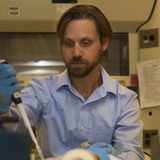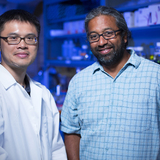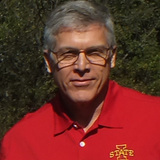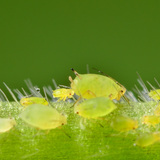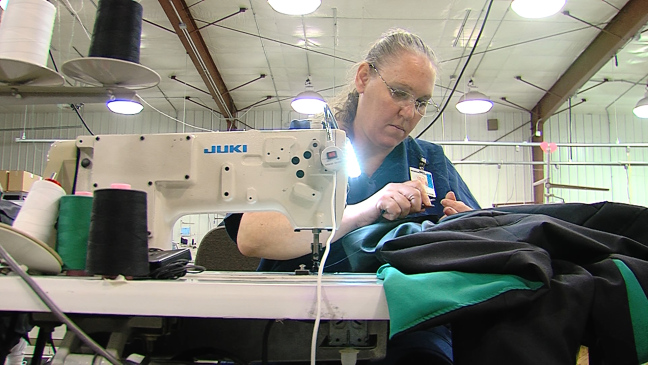News Archive
Tuesday, July 12 2016
-
Discovery could lead to treatment to better regulate insulin
A recent discovery made by an Iowa State University professor and a team of researchers holds promise for those who are obese or diabetic and do not benefit from medications to regulate their glucose and insulin levels.
-
Iowa State research shows perennials would reduce nutrient runoff to the Gulf of Mexico’s dead zone
Computer-generated models show perennial plants such as switchgrass could reduce nitrogen runoff from farm fields into the Gulf of Mexico. The ISU agronomist who led the study said perennials could be an important tool in combatting the Gulf of Mexico’s hypoxic zone.
-
Hotel Memorial Union garage sale is July 14
The contents of the Hotel Memorial Union's remaining 29 guest rooms will be sold at a public garage sale July 14. Furniture, lamps, luggage stands and other items will be priced to sell from 4:30 to 7 p.m. As announced in April, the Hotel Memorial Union ceased operations on July 1. Beginning next month, Iowa State's Department of Residence will operate the top three floors of the MU as student housing.
-
Iowa State researchers describe copper-induced misfolding of prion proteins
Iowa State University researchers have integrated research approaches to discover how copper ions cause prion proteins to misfold and seed the misfolding and clumping of nearby prion proteins. They also found the copper-induced misfolding and clumping is associated with damage to nerve cells in brain tissue from a mouse model. The findings are published today in Science Advances.
-
Decision to ban unrealistic body images has merit, but presents challenges
A public health measure and a slippery slope. That's how Iowa State University experts describe the decision by London's mayor to ban ads with "unrealistic body images" from the city's public transit system. The ban is intended to limit exposure to ads that can have harmful effects, but it raises questions on how to define what's acceptable.
-
ISU scientists develop nanomachines to diagnose illness
Tiny machines that build themselves and detect disease? Step inside the nanoscale world of Eric Henderson.
-
Breathing new life into schoolyards benefits entire communities
Millions of American elementary school children are sidelined on barren plots of cracked asphalt that resemble parking lots rather than schoolyards. And despite the educational and health benefits of green landscapes, only two major cities in the United States — Denver and Boston — have renovated all of their public schoolyards. Bambi Yost, an Iowa State University assistant professor of landscape architecture, and her students are part of a collaboration of nonprofits, government agencies, landscape architects, schools, community members and universities. Together they are breathing new life into more than 300 neglected schoolyards in the School District of Philadelphia. They represent a burgeoning national movement to green schoolyards.
-
Give ‘em enough rope: Iowa State University veterinarians find an easier way to collect diagnostic samples from pigs
Iowa State veterinarians have found that taking oral fluid samples from swine allows them to monitor diseases accurately without the difficult step of taking individual blood samples.
-
Workshop to present commercial viability of ‘Hexcrete’ idea for taller wind turbine towers
Iowa State University engineers will explain the benefits of their Hexcrete technology for taller wind turbine towers during a workshop in late June. They'll also discuss how potential partners can be involved in building a full-scale prototype tower. The engineers have been developing the precast concrete technology since 2010.
-
Even when help is just a click away, stigma is still a roadblock
Stigma is a major barrier preventing people with mental health issues from getting the help they need. Even in a private and anonymous setting online, someone with greater self-stigma is less likely to take that first step to get information about mental health concerns and counseling, according to a new Iowa State University study.
-
Iowa State University entomologists assess possibility of fighting soybean aphids with other insects
Iowa State University entomologists are studying the possibility of combating soybean aphids, one of the most damaging pests Iowa farmers battle, by introducing a species of stingless wasp that eats them. The harmless, stingless wasps may offer a form of biological control that could suppress soybean aphid populations.
